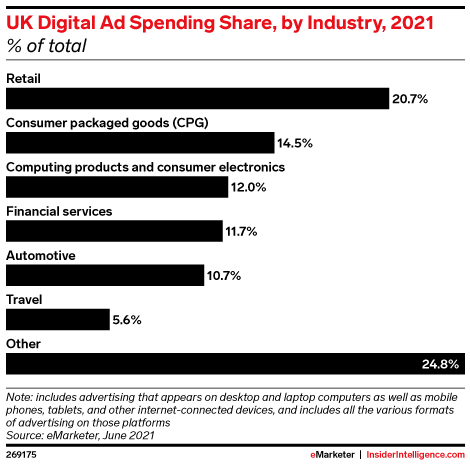The UK’s digital advertising industry weathered the pandemic remarkably well. Among the industry sectors tracked by e-Marketer, digital ad spending is predicted to rise across the board (which was not universal last year), but these growth patterns will fluctuate wildly across categories.
In 2020, digital spending increased 8.0% and will rise another 16.8% this year to £19.23 billion ($24.66 billion), cementing the UK’s position as the largest market for digital ad spending in Europe. For the first time, digital will account for more than three-quarters of total UK media spend this year.
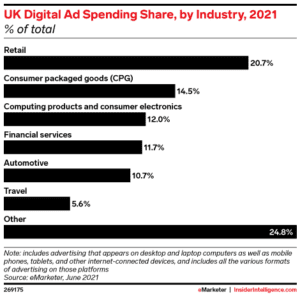
Looking at the breakouts of spend across industries, though, the pandemic heralded something of a rollercoaster ride. Ad spending growth was relatively even across the board in 2019, but we saw massive declines in 2020 for some segments like travel (-51.0%) and huge growth for others like computing products and consumer electronics (38.8%).
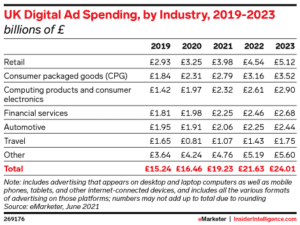
- Travel ad spending will rise 33.0% this year—a massive 84-percentage-point swing.
- Retail’s growth rate is expected to double.
- On the flip side, consumer electronics will shed more than half its growth rate.
All industries tracked will increase their spending, with travel leading the way. Automotive will prop up the list with modest growth of just 7.8%.
Travel’s sizable gains this year, though, will do little to help it regain much ground in its share of total digital ad spending. Pre-pandemic, travel spending accounted for 10.8% of the digital total. Last year, that proportion plummeted to just 4.9%, and despite strong growth in spend in 2021, it will “recover” to just 5.6%.
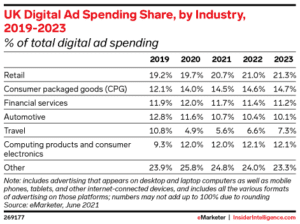
The “Other” category accounts for a large proportion of spend and contains industries that are sizable but not sizable enough to be broken out individually (health and pharma, real estate, business, and industrial and education, for example).
The only change in the ranking this year will be computing products inching ahead of financial services into third place.
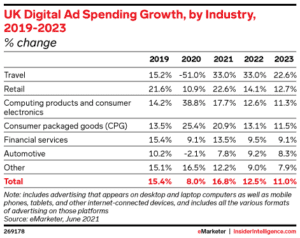
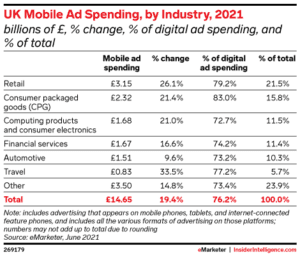
In terms of digital advertising, mobile’s strength has been furthered as it accounts for between 72.7% (for computing products) and 83.0% (for CPG) of all digital spending in each industry.
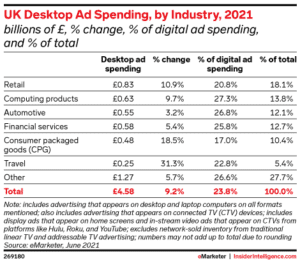
For more on this, read the report on UK Digital Ad Spending by Industry 2021.

